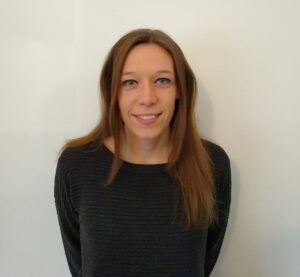
Silvia Silleresi is a research fellow at Bicocca University, working in the Acquirer group led by Maria Teresa Guasti, as part of the ERC Synergy Grant 2019 project, Leibniz Dream. Previously, she was a research fellow at the I3lab (Innovative, Interactive Interfaces Laboratory) at Politecnico di Milano. She obtained her PhD in Psycholinguistics in 2018 at UMR 1253, iBrain, Université de Tours (France), with a dissertation titled “Structural language and nonverbal ability profiles in monolingual and bilingual children with ASD.”
Her primary research interests include first and second language acquisition, as well as the structural language and nonverbal cognitive profiles of both typical and atypical populations, such as those with Autism Spectrum Disorder (ASD) and Developmental Language Disorder (DLD).